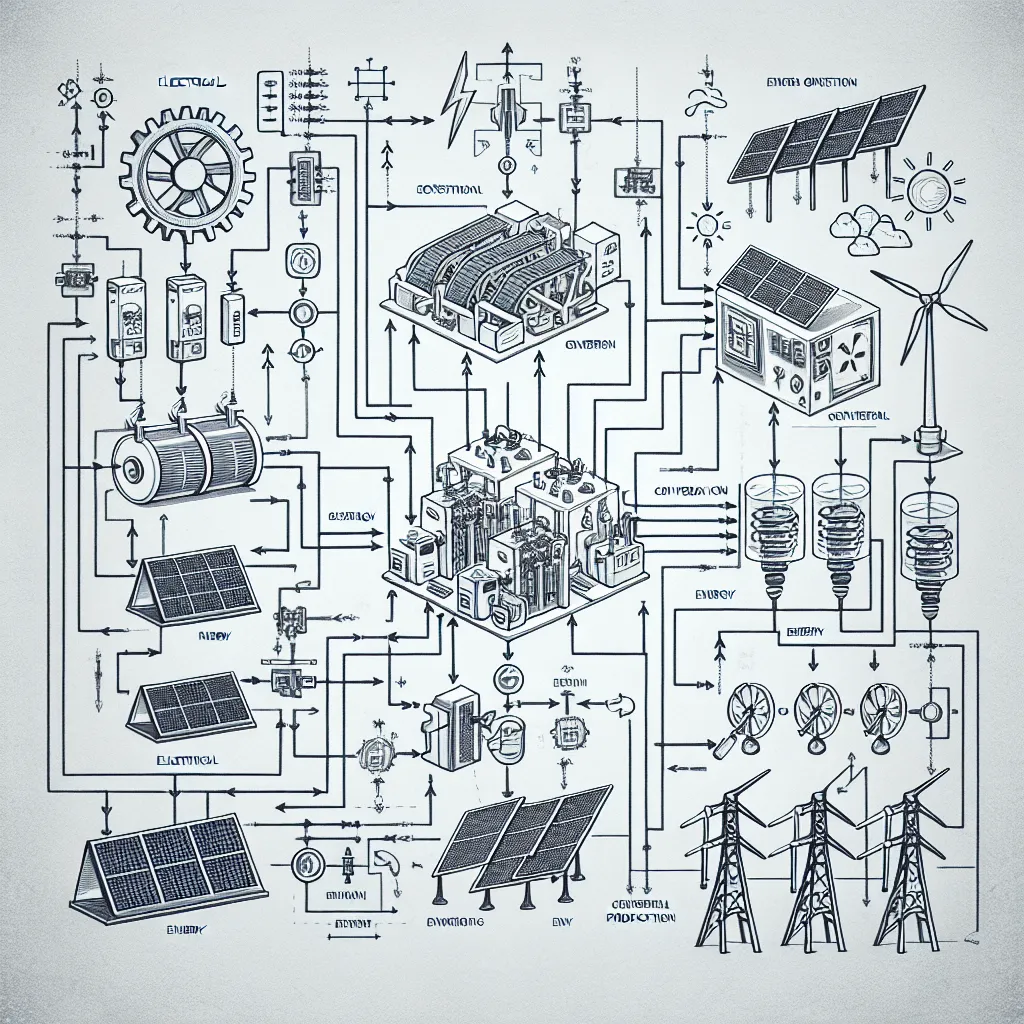Power output is a crucial concept in physics and engineering that often appears in IELTS exams, particularly in the Reading and Writing sections. As an IELTS instructor, I’ll guide you through understanding, remembering, and effectively using this term in your test preparation.
Definition and Pronunciation
Power output (noun) /ˈpaʊər ˈaʊtpʊt/: The amount of energy produced by a device or system per unit of time.

Context and Usage
Examples in Context
-
The new solar farm has significantly increased the power output of the region’s renewable energy system.
In this sentence, “power output” refers to the electricity generated by the solar farm, emphasizing its contribution to the overall energy production. -
Engineers are constantly working to improve the power output of electric vehicles to extend their range.
Here, “power output” relates to the efficiency of electric motors in converting stored energy into mechanical power for vehicle propulsion. -
The power output of the hydroelectric dam fluctuates seasonally due to changes in water levels.
This example illustrates how environmental factors can affect the energy production (power output) of a hydroelectric facility. -
Researchers have developed a new material that could double the power output of thermoelectric generators.
In this context, “power output” refers to the efficiency of converting heat directly into electricity, highlighting a potential technological advancement. -
During peak hours, the nuclear power plant operates at maximum power output to meet increased energy demand.
This sentence demonstrates how power plants adjust their energy production (power output) based on consumer needs.
Common Contexts
“Power output” is frequently used in discussions about:
- Renewable energy systems (solar, wind, hydro)
- Electrical engineering and power generation
- Automotive and transportation technologies
- Industrial machinery and equipment
- Sports science and athletic performance
Frequency in IELTS
“Power output” appears moderately often in IELTS exams, particularly in:
- Reading passages about energy, technology, or environmental science
- Writing Task 1 reports describing energy production data
- Writing Task 2 essays on topics related to renewable energy or technological advancements
Vocabulary Analysis
Word Structure
- Power (root word): Energy or force
- Output (compound element): What is produced or delivered
Synonyms and Antonyms
Synonyms:
- Energy production /ˈenədʒi prəˈdʌkʃən/ (noun): The generation of power from various sources.
- Power generation /ˈpaʊə ˌdʒenəˈreɪʃən/ (noun): The process of creating electrical power from other forms of energy.
- Energy yield /ˈenədʒi jiːld/ (noun): The amount of energy produced by a system.
Antonyms:
- Power input /ˈpaʊər ˈɪnpʊt/ (noun): The amount of energy consumed by a system.
- Energy consumption /ˈenədʒi kənˈsʌmpʃən/ (noun): The use of power by a device or system.
Memory Techniques
Mind Map
Create a mind map with “Power Output” at the center, branching out to related concepts:
- Energy sources (solar, wind, nuclear)
- Measurement units (watts, kilowatts)
- Applications (electricity grid, vehicles, industrial machines)
- Factors affecting output (efficiency, environmental conditions)
Mnemonic Story
Imagine a powerful superhero named “P.O.” (Power Output) who gains strength from various energy sources. P.O.’s mission is to supply cities with clean energy, battling against the villain “Energy Drain.” The more efficient P.O. becomes, the more power they can deliver to the grateful citizens.
Practice Exercises
-
Write a paragraph explaining how improvements in power output could impact renewable energy adoption.
-
Describe a graph showing the power output of different energy sources over a year. Use appropriate IELTS Writing Task 1 language.
-
Create sentences using “power output” and its synonyms in various contexts related to technology and environment.
-
Research and write a short essay on the challenges of increasing power output in sustainable energy systems.
-
Practice explaining the concept of power output to a friend, using everyday examples to illustrate your points.
Conclusion
Understanding and effectively using the term “power output” can significantly enhance your performance in the IELTS exam, especially in tasks related to energy, technology, and environmental topics. By mastering this concept, you’ll be better equipped to handle reading passages, data interpretation, and essay writing on these subjects.
Remember to practice using “power output” in various contexts, and don’t hesitate to incorporate it into your IELTS preparation routine. If you have any questions about using this term or need further clarification, feel free to ask in the comments below.
To further expand your IELTS vocabulary, you might want to explore related topics such as explosive power in sports science or the challenges of integrating renewable energy into the power grid. These concepts often appear together in IELTS materials and can help you build a more comprehensive understanding of energy-related topics.